Description
ABSTRACT
Banker’s Order: An Examination of the Liabilities for Wrongful Dishonour of Cheques
Michael O. Ogunjobi*
With the relish of an Archimedes yelping at the discovery of floatation, Police Officers approach Banks with a Place No Debit Restriction Order in form of ‘Banker’s Order’ sanctioned by Magistrates’ Courts, sometimes premised on an allegation of fraud or mere breach of contract simpliciter; only for Banks to realize subsequently that they have caught tartar upon being faced with attendant lawsuits. Admittedly, if all marriages were as beautiful as pre-wedding pictures, there would be nothing like divorce; thus, the union between Banks and Police Officers as it relates to the legality of the Banker’s Order sanctioned by Magistrates’ Courts in freezing Bank accounts and attendant liabilities when a cheque that emanates on the affected account is dishonoured with inappropriate markings to warrant a divorce of this union is the focal point of this paper. The paper examines the legality of the Banker’s Order and the liabilities of the bank and its customer.
Keywords: Cheque, Banker’s Order, Liability, Police, Banks, Corporate Governance.
INTRODUCTION
Generally speaking, a ‘Cheque’ is a written order to a Bank to pay a certain sum of money from one’s Bank account to oneself or another person. For all intents and purposes, it is an instrument for payment that metamorphoses into physical cash upon due presentation at the Bank; as such, a legal tender.1 Section 73 of the Bill of Exchange Act2 defines a cheque as “a bill of exchange drawn on a banker payable on demand”.
Over time, many have suffered an unquantifiable loss due to disregard of the rule of law by Police Officers and the complicity of Banks brazenly freezing their customers’ Bank accounts on the strength of a ‘Banker’s Order’.3 As herein explicated, a Bank fails to enquire whether or not a prosecuting agency of government had properly obtained an Order which it acted upon in freezing the account of its customer at its peril since the Bank will not escape liability for the freezing of account in the absence of a valid Order of Court.4
* LL.B, BL, LL.M. The author is a member of the Chartered Institute of Loan and Risk Management, Nigeria and a Counsel in the Chambers of Norrison I. Quakers SAN. Email: mi*************@***oo.com
- Per Niki Tobi, JSC (of blessed memory), Abeke v State [2007] LPELR-31(SC).
- CAP B3 Laws of the Federation of Nigeria (LFN) 2004(2).
- The apex Court in Omni Products (Nig.) Ltd. & Anor. v Union Bank of Nig. Plc [2021] 10 NWLR (pt 1783) 92 expounded on the nature of the fiduciary relationship which imposes on the bank a duty to exercise reasonable care and skill in managing its customers’ funds; See Olumide Babalola, ‘The Class Action That Finally Buried Bankers’ Order Debacle In Nigeria’ (The Nigeria Lawyer 20 June 2019) accessed 18 November 2021.
- See the lead judgment of James Shehu Abiriyi, JCA in Guaranty Trust Bank Plc v Odeyemi Oluyinka Joshua [2021] LPELR 53173(CA).

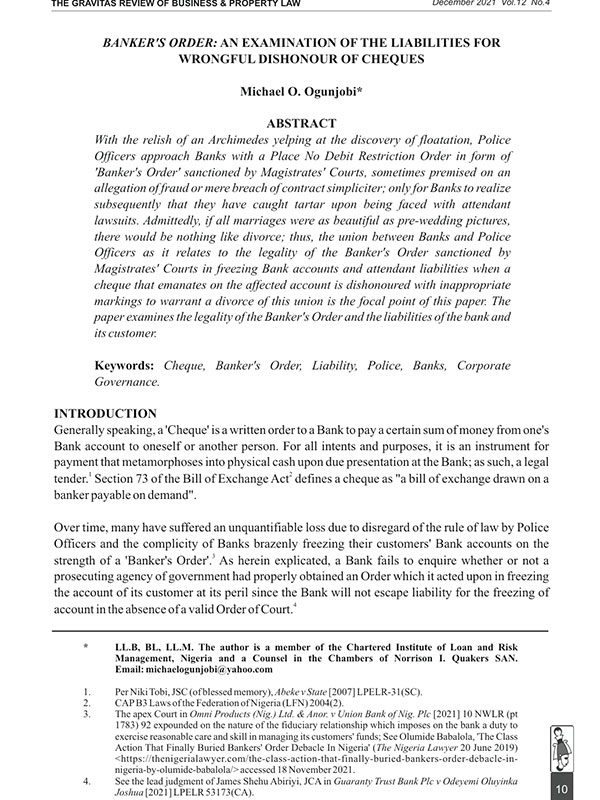
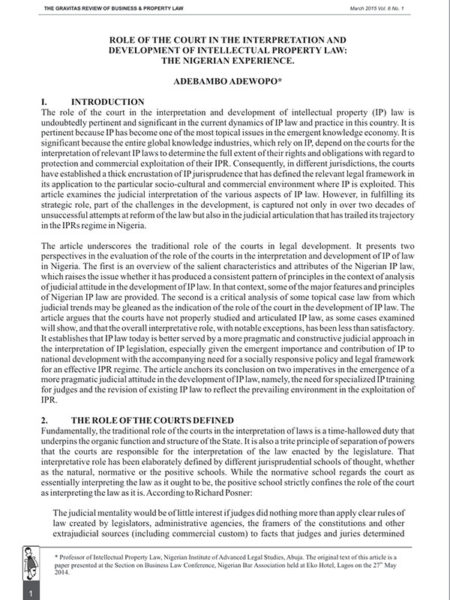
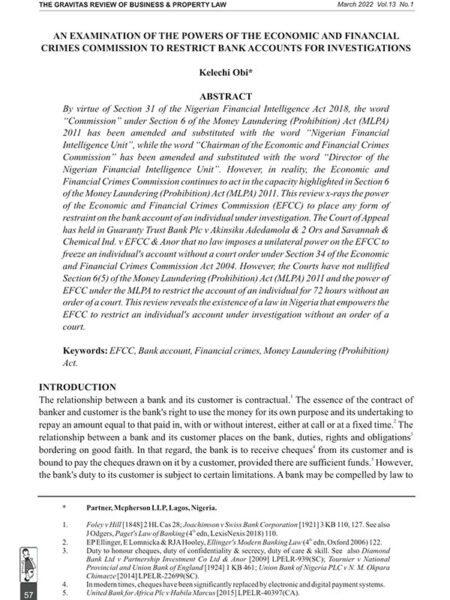
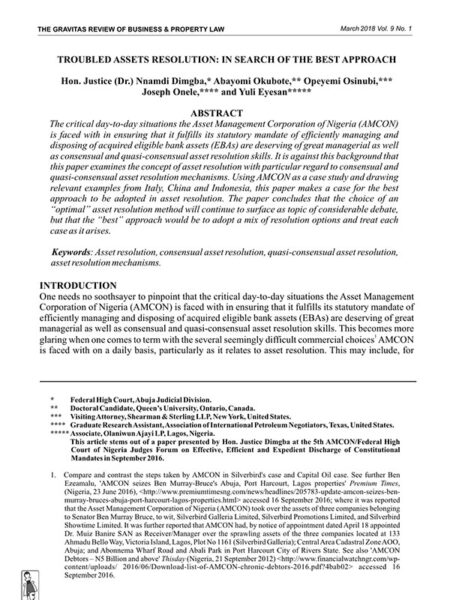
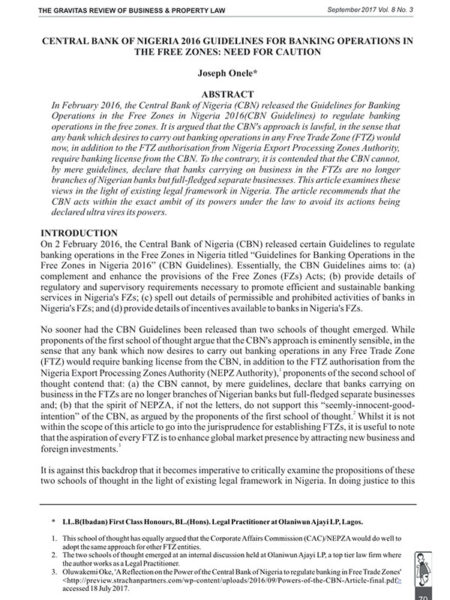


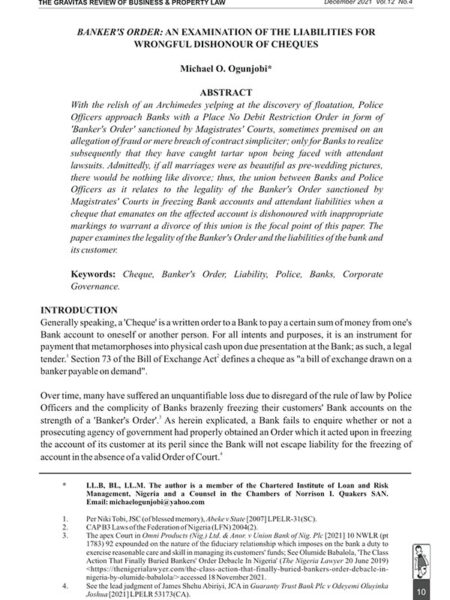
Reviews
There are no reviews yet.